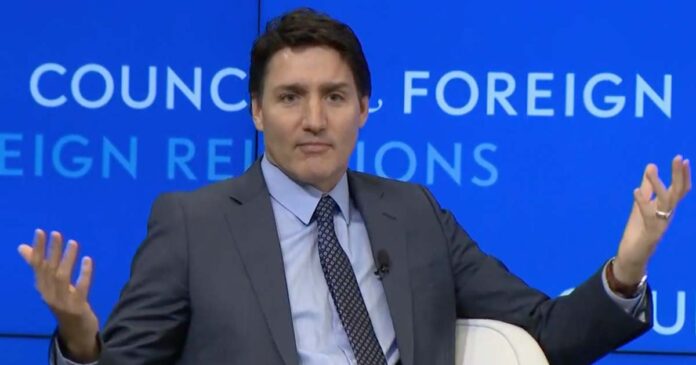Prime Minister Justin Trudeau has to face the music: Not everyone likes him, particularly the Indigenous.
That came out loudly and clearly in a recent Pollara survey that suggests the Conservatives have a 12-point lead amongst Indigenous voters, which some believe could be partly due to the party’s talking points on fiscal responsibility and spending.
Following that online poll, strategists say the Liberals cannot afford to “rest on their laurels” from past accomplishments.
Instead, they will need “future-oriented goals and innovative ideas” to show that they remain the party to make continued progress toward Indigenous reconciliation and self-determination, a sermon the prime minister has been preaching to lacklustre results for eight years.
But after those eight years and a growing dissatisfaction with the Liberals’ “over-promised and under-delivered” agenda, policy analyst Melissa Mbarki told the Hill Times that a good first step to addressing those shortcomings is recognizing the diversity of views among Indigenous voters and that “not everyone likes (the Liberals).”
Of the 7,001 respondents who participated in the Pollara survey in mid-June, 5,423 — or 81% — indicated they were decided voters, with 32% stating they would be voting for the Conservatives, followed by the Liberals at 30%, the NDP at 21%, the Bloc Québécois at 8%, the Green Party at 5%, and People’s Party with 3%
But the real tale of the tape is told when the survey is broken down along ethnic lines. While the Liberals lead among most non-white demographics, the Conservatives have a five-point lead over the Liberals amongst the Filipino community and a 12-point lead amongst Indigenous voters at 31% compared to the Liberals’ 19%. Even the NDP is outperforming the Liberals among Indigenous voters at 25%.
These are numbers rarely seen in polls.
Mbarki said that while it can be difficult for polling firms to acquire a large enough data set to provide a reliable representation of those communities’ voting intentions, she wasn’t surprised by the Liberals’ comparatively weak polling.
While Mbarki said she would have preferred a larger, more in-depth survey of Indigenous voters with a breakdown by region as well as First Nations, Inuit, and Métis identity, she said the numbers fall in line with the sense of disappointment those voters have with the Trudeau Liberals’ shortcomings and the increasing tenor of the Conservative Party’s messaging on issues like economic development and resource management.
“There are talking points within the Conservative Party that many of us can relate to, especially when it comes to fiscal responsibility and spending,” Mbarki told the Hill Times, adding that Conservative leader Pierre Poilievre’s messaging on the cost of living particularly resonates with those communities dealing with issues of poverty and lack of housing.
“That’s messaging that we can relate to so we’re going to start looking to see what this party can do for us,” Mbarki explained. “I think Indigenous politics are shifting in a really big way, and we’re going to gravitate to the party that is supporting our economic development.”
“There’s so much more work to be done and a lot more they (Liberals) can do,” Mbarki said. “That’s the disconnect; (the Liberals) talk about reconciliation, but they don’t actually follow through on their words.”
Beyond simply acknowledging where they have fallen short or made missteps, Mbarki also said that, as with the booing crowd at the North American Indigenous Games, the Liberals will need to just accept the fact that “not everyone likes them.”
.





















